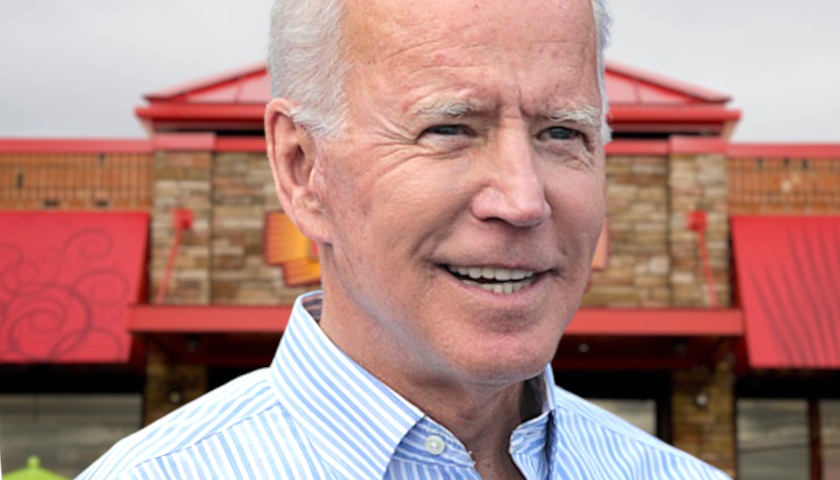After pro-abortion groups decided to abandon their lawsuit, the city of Lebanon, Ohio may start implementing its Sanctuary City for the Unborn ordinance once more.
In May of 2021, Lebanon, Ohio became the first in the state to enact a measure outlawing abortion and declaring itself “a sanctuary city for the unborn.” According to the Sanctuary City for the Unborn website, more than 60 other cities across the U.S. have passed similar ordinances.
Shortly after the law passed, the left-leaning National Association of Social Workers and the Abortion Fund of Ohio filed a lawsuit arguing that the citywide abortion ban represented an “extraordinarily broad” infringement on the constitutional rights of due process and free speech. The groups’ lawyers at the American Civil Liberties Union (ACLU) of Ohio and Democracy Forward further alleged the ban violated Ohio’s home-rule provisions.
Instead of defending the law in court, the city of Lebanon opted to modify it. While that work was being done, enforcement of the law was suspended.
Recently, Lebanon’s officials and the groups came to an agreement that maintains the city’s blanket ban on abortion while also adding language to the code to make it clear that it does not restrict free speech.
The agreement represents a win for unborn children in Ohio, according to Mark Lee Dickson leader of the Sanctuary City for the Unborn effort and a director with Right to Life of East Texas.
“Abortion remains illegal in Lebanon, so this is a great victory for Ohio. It’s worth pointing out that the opposition claims that we were doing more than we were actually doing. The fact that we clarified our position does not take away from the abortion ban,” Dickson said.
According to the lawsuit, the ACLU, National Association of Social Workers, and Abortion Fund of Ohio sued the city on the grounds that the act hampered their ability to counsel women about abortions.
However, Lebanon City Attorney Mark Yurick asserted that the new code makes it clear that city officials were not attempting to censor free expression.
Ohio Right to Life director of communications Elizabeth Marbach applauded the city of Lebanon for protecting the preborn and told The Ohio Star that she hopes that their victory will encourage others to do the same.
“Lebanon’s monumental pro-life win has us overjoyed, and we pray that their bold defense of the preborn would encourage others to do the same. Abortion has no place here in the buckeye state, and this is only the beginning,” Marbach told The Ohio Star.
In the remainder of Ohio, abortion is still permitted as of right now.
The state heartbeat law, which was in force for a brief period of time after the U.S. Supreme Court reversed Roe v. Wade last year, prohibits abortions after an unborn baby’s heartbeat is detectable, which is around six weeks into pregnancy. However, pro-abortion organizations filed a lawsuit, and a state judge temporarily stopped the law’s application. Ohio Attorney General Dave Yost is appealing.
Although there isn’t an abortion facility in Lebanon, the law forbids one from opening. Additionally, it will fight the growth of medications used in mail-order abortions, which the Biden administration started to permit in late 2021.
Over 60 cities in Texas, Nebraska, Ohio, Louisiana, Iowa, and New Mexico recently enacted laws establishing Sanctuary Cities for the Unborn, according to its website.
Despite threats from pro-abortion advocates, localities with pro-life policies have prevailed in court, notably Lubbock, Texas, where city officials compelled Planned Parenthood to stop killing unborn children.
The ACLU withdrew a further lawsuit in 2020 that contested pro-life ordinances in many Texas cities.
Locally, there is a rising grassroots movement aimed at defending unborn children. Several cities and counties in Ohio have adopted pro-life resolutions, which are declarations of support rather than binding laws that uphold the right to life of unborn children, in recent years. The Family Council of Arkansas estimates that at least 20 counties and 13 cities and municipalities in Arkansas have enacted pro-life resolutions. Recently, pro-life resolutions were also approved in several North Carolina counties.
– – –
Hannah Poling is a lead reporter at The Ohio Star and The Star News Network. Follow Hannah on Twitter @HannahPoling1. Email tips to [email protected]
Photo “Infant” by Pixabay.





